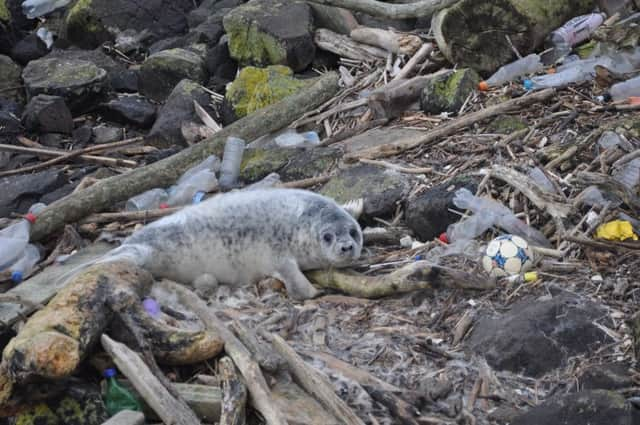Dolphins, whales and seals that died in UK waters all swallowed plastic - new research


Experts from the University of Exeter and Plymouth Marine Laboratory examined 50 animals from ten species and found microplastics in every one.
Environmentalists say the findings are “ominous”.
Analysis of the corpses, supported by Greenpeace Research Laboratories, revealed the animals had ingested an array of plastics, including synthetic fibres from sources such as clothes, fishing nets and toothbrushes and fragments from food packaging and drinks bottles.
Advertisement
Hide AdAdvertisement
Hide AdNow the scientists are calling for further research to explore the impacts of plastic ingestion on animal health and urging governments and industry to take stronger action to cut plastic waste.
Louise Edge, head of Greenpeace UK’s ocean plastics campaign, said: “It is ominous that every single marine mammal tested was found to have microplastics in their digestive system, and it shows the scale of plastic pollution in our seas.
“This is yet more evidence that the government and big businesses need to focus their efforts on drastically reducing the use and waste of plastics to stem the flow of plastic pollution into our rivers and oceans and into the mouths of marine wildlife.”
Around eight million tonnes of waste plastic ends up in the world’s oceans annually – and the figure is set to increase tenfold by 2020.
Advertisement
Hide AdAdvertisement
Hide AdPlastic takes hundreds of years to break down and poses a major threat to nature and the environment. Estimates suggest at least 100,000 marine mammals, more than a million seabirds and countless fish and shellfish die each year as a result.
In 2017 Greenpeace undertook a two-month research voyage to examine the extent of plastic pollution in seas and on beaches around Scotland.
Samples were collected in key wildlife foraging areas, from Bass Rock to the remote Shiant Isles in the north-west.
Results showed nearly two thirds of seawater in some of the country’s most important feeding grounds for basking sharks, whales, dolphins and seabirds contained tiny chunks of plastic pollution.
Advertisement
Hide AdAdvertisement
Hide AdAnalysis found 63 per cent contained at least one fragment of plastic, while some had more than ten pieces.
During the expedition, researchers were shocked to see seabirds building nests out of plastic debris and attempting to feed litter to chicks.
The findings coincide with rising numbers of whales and dolphins, dying around Scotland.